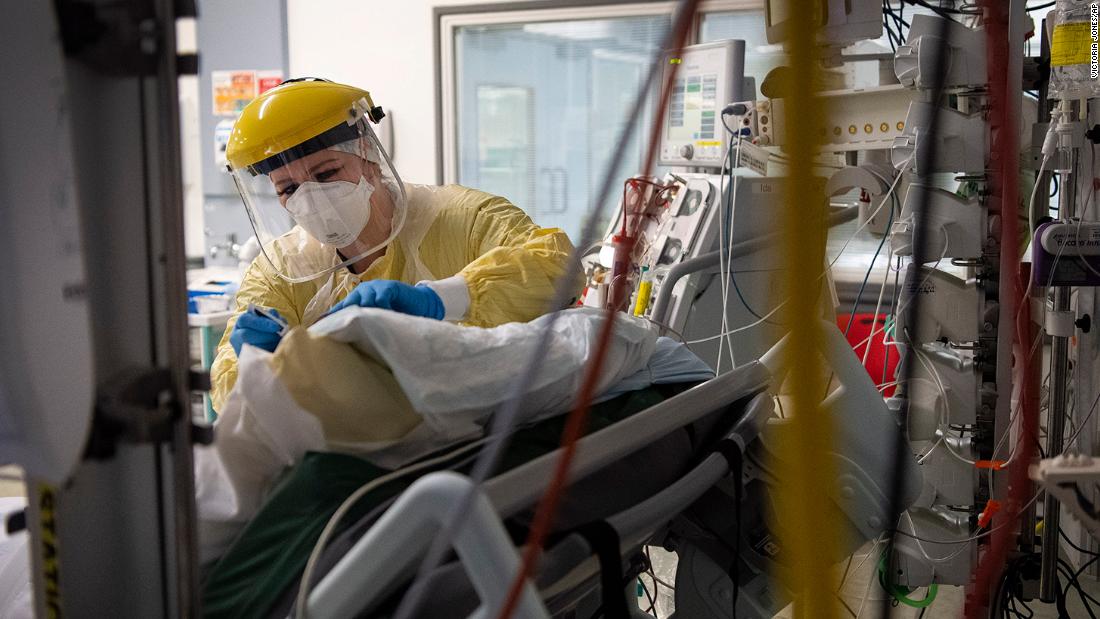The SIREN survey examined the impact of the infection on more than 20,000 volunteer health workers across the UK and a pre-print of the study found only 44 cases among 6,614 people.
Two groups of people, one with no evidence of previous infection and the other with evidence of previous infection, were followed for up to six months.
The study – which has not yet been peer-reviewed – concluded that the previous infection reduces the chances of contracting the virus again by 83% for at least five months.
The cohort was tested regularly for Covid-19.
“About 6,000 of the healthcare professionals were people with evidence of SARS-CoV-2 infection … and about 14,000 of the healthcare professionals were people who had no evidence of previous SARS-CoV-2 infection,” Tom Wingfield , senior clinical lecturer at Liverpool School of Tropical Medicine, told the UK’s Science Media Center.
“The results suggest that reinfection rates in the positive cohort were 83% lower than in the negative cohort during the follow-up period.”
But the researchers warned that protection was not complete and it was not clear how long immunity lasts. It is also possible that those who have some degree of immunity against the virus are still able to pass it on to others.
“Now we know that most of those who have had the virus and developed antibodies are protected against reinfection, but that is not total and we still don’t know how long the protection lasts,” Susan Hopkins, senior medical consultant at PHE et al. – leader of the study, he said according to Reuters.
“Even if you believe you have had the disease and are protected, you can be sure that it is highly unlikely that you will develop serious infections. But there is still a risk of getting an infection and passing it on to others,” said Hopkins.
Hopkins emphasized the point during an interview for the BBC Today program on Thursday.
“[Infection] reduces risk by at least 80% … but does not eliminate it, “she said.
“We found people with very high amounts of virus in their nose and throat swabs, who would easily be in the range that would cause levels of transmission to other individuals.” Hopkins emphasized that people who had already contracted Covid-19 still needed to obey the rules of social detachment to prevent the transmission of the disease.
England is currently under a strict national blockade, after an increase in cases during the holiday period. The UK recorded more than 3.2 million cases of infection.
“What [the study] what really stands out is that, immediately after the infection, you probably have a high level of protection, but that will deteriorate over time, “Niall Ferguson, a leading epidemiologist at Imperial College London, told the BBC.
“Transmission is now slower than it would be in the absence of people being infected and those people who already had the virus are less at risk of being infected – and this is cumulatively slowing the spread.”
“This study supports the hypothesis that primary infection … provides a high degree of immunity to repeat infection in the short to medium term; with similar levels of prevention of symptomatic infection as vaccines currently licensed for adults of working age,” the PHE report notes.
“Primary infection also reduces the risk of asymptomatic infection and, therefore, later transmission; this is particularly important in [that]… health was seen as a potential driver for the continued transmission of the community on Wave 1 in the UK.
Researchers will continue to study antibody responses to infection and the impact of Covid-19 vaccines.
